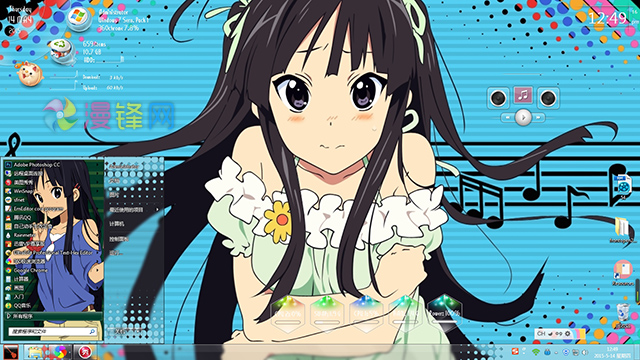
易手游安卓版

- 文件大小:53.88MB
- 界面语言:简体中文
- 文件类型:Android
- 授权方式:5G系统之家
- 软件类型:装机软件
- 发布时间:2024-11-19
- 运行环境:5G系统之家
- 下载次数:337
- 软件等级:
- 安全检测: 360安全卫士 360杀毒 电脑管家
系统简介
<>惊讶的含义与用法解析
在日常生活中,我们经常遇到各种令人惊讶的事情。那么,究竟什么是惊讶?它有哪些用法?本文将为您详细解析惊讶的含义与用法。
惊讶,英文为“surprise”,是一种情感体验,通常指由于意外或出乎意料的事情而感到震惊或困惑。惊讶可以是对新信息的接收,也可以是对已知信息的重新认识。
1. 形容词用法
惊讶可以作为一个形容词,用来描述人或事物的状态。
例如:The news of his retirement came as a surprise to everyone.(他退休的消息让每个人都感到惊讶。)
2. 名词用法
惊讶也可以作为一个名词,表示惊讶的情感或状态。
例如:She showed her surprise at the unexpected gift.(她对这份意外的礼物表示了惊讶。)
1. Astonishment
astonishment意为“惊讶”,强调由于某事而感到震惊或震惊的程度。
例如:The audience was filled with astonishment at the magician's trick.(观众对魔术师的魔术感到震惊。)
2. Amazement
amazement意为“惊讶”,强调由于某事而感到极度惊讶或惊奇。
例如:The child's talent for painting was a source of amazement to everyone.(这个孩子绘画的天赋让每个人都感到惊奇。)
3. Shock
shock意为“震惊”,强调由于某事而感到极度震惊或不安。
例如:The news of the accident shocked the whole community.(这个意外的消息让整个社区都感到震惊。)
1. I was surprised to see him at the party.(看到他在聚会上,我感到很惊讶。)
2. The discovery of the ancient city was a source of great astonishment.(这个古城的发现让人感到极度惊讶。)
3. The sudden change in the weather caught us by surprise.(天气的突然变化让我们感到惊讶。)
1. 交流中的惊讶
在交流过程中,惊讶可以用来表达对对方话语或行为的反应。
例如:A: “I just won the lottery!” B: “You're kidding! That's amazing!”(A:“我刚中了彩票!”B:“你在开玩笑吧!太棒了!”)
2. 故事情节中的惊讶
在故事情节中,惊讶可以用来推动故事发展,增加悬念。
例如:As the detective revealed the truth, the audience was on the edge of their seats, filled with astonishment.(当侦探揭露真相时,观众都坐在座位上,充满了惊讶。)
惊讶是一种常见的情感体验,在日常生活中有着广泛的应用。通过本文的解析,相信大家对惊讶的含义与用法有了更深入的了解。
常见问题
- 2025-05-01 复古奇迹官网版
- 2025-05-01 小小优趣小小优趣
- 2025-05-01 gspace官网版下载
- 2025-05-01 超空气援助手
装机软件下载排行

其他人正在下载
- 天体数藏app
- 液多多商户版
- 旺店通旗舰版手机版
- 小滴云手机官网版
- 小狐狸官方手机钱包
- tokenpocket官网下载
- Cobo钱包官网版
- tokenim官网下载
- TronLink正版钱包
- Math Wallet钱包官网版






